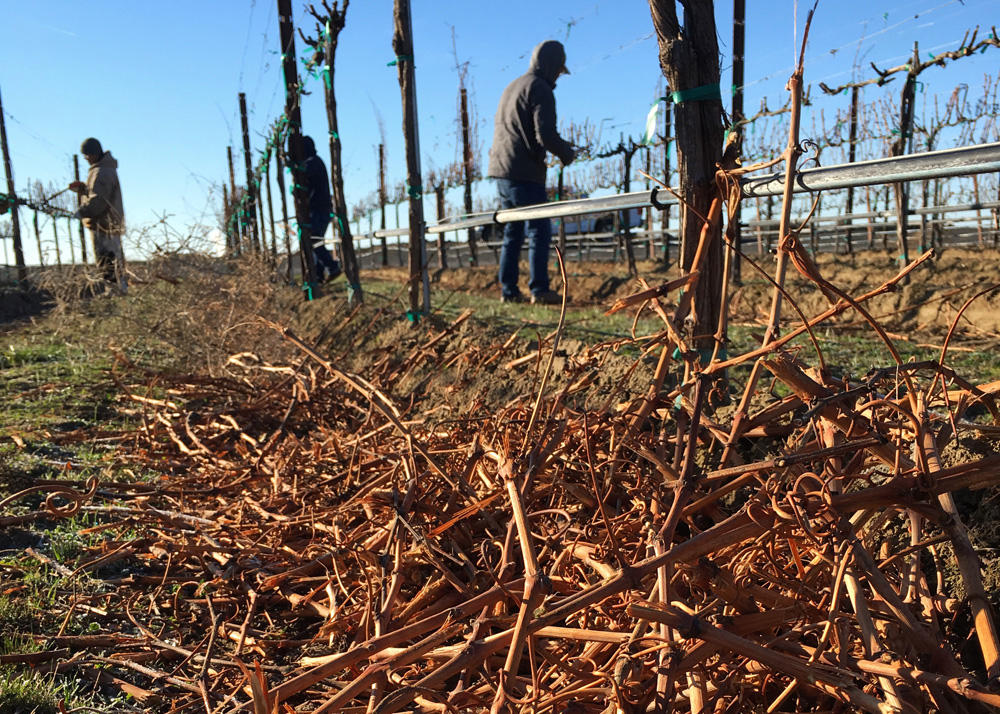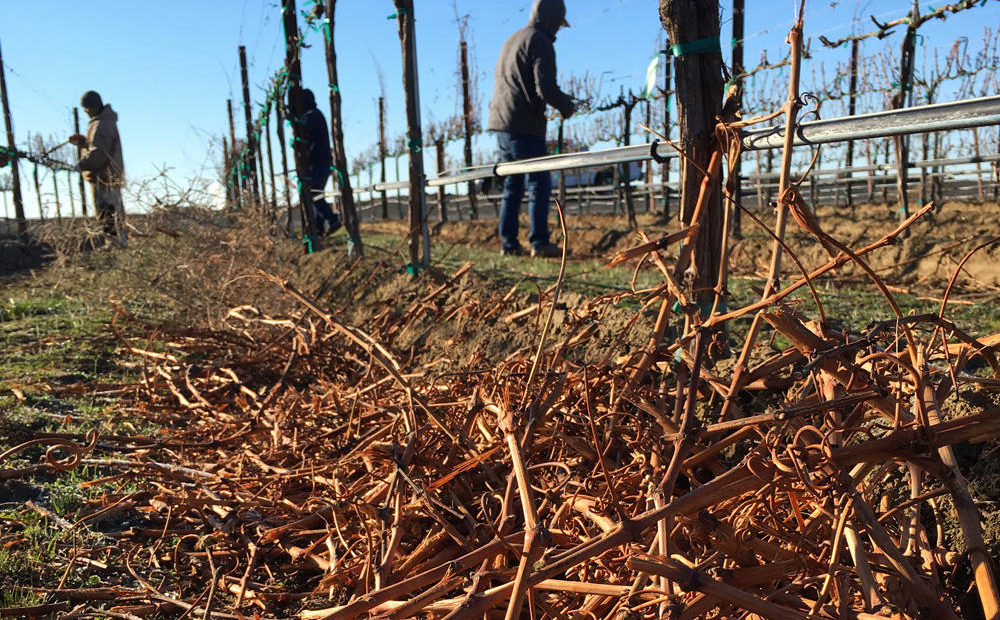
Northwest Farmers Worry As Fruit Buds ‘Push’ Early
Listen
East of the Cascades in Washington and Oregon, it’s been about five to 10 degrees warmer than normal for most of the winter. Those unusually warm conditions have buds on fruit trees and grapevines starting to “push,” or emerge early.
And that has farmers worried.
Crews have already started pruning at the McNary Vineyard on the Washington bluffs of the Columbia River. Around 30 men are pruning the vines, carefully leaving two buds on each spur for the fruit’s fresh growth to emerge.
Vineyard General Manager David Forsyth explained that the warm winter is starting to swell buds with water and sap. That means they can be more easily damaged by coming cold snaps.
“Will that be an issue or not? We don’t know,” Forsyth said. “We do have wind machines here to help us move the air around if we does get cold.”
Forsyth said he hopes to get some consistent cold weather that slows the buds’ development, keeping them hardier longer.
Forsyth also said that it’s been harder in recent years to assemble and keep a crew every year, so they started back in January.
“There’s more vineyards going in. More orchards going in,” he said. “Certainly the immigration issues get tougher every year.”
They are doing more at the vineyard with machines. But it will still take this crew a month and a half to prune all 660 acres.
Copyright 2018 Northwest News Network
Related Stories:
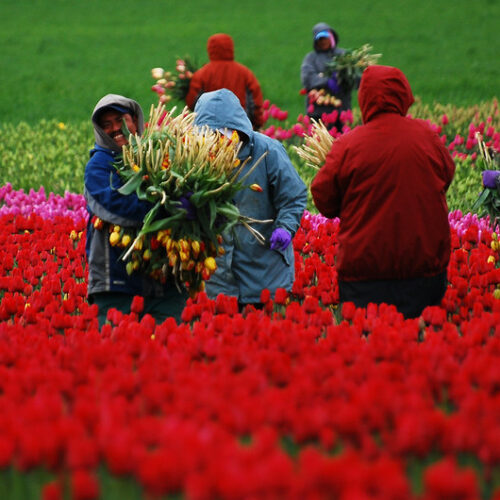
New funding to build farmworker housing in the Pacific Northwest, nationwide
The United States Department of Agriculture is soliciting applications for funding to build farmworker housing nationwide.
In the Pacific Northwest, leaders hope the money can address gaps in farmworker housing. The Pacific Northwest is in a housing crisis and that impacts rural small businesses and agricultural producers, as well as farmworkers, said Helen Price Johnson, who is the Washington State Rural Development director for the USDA.
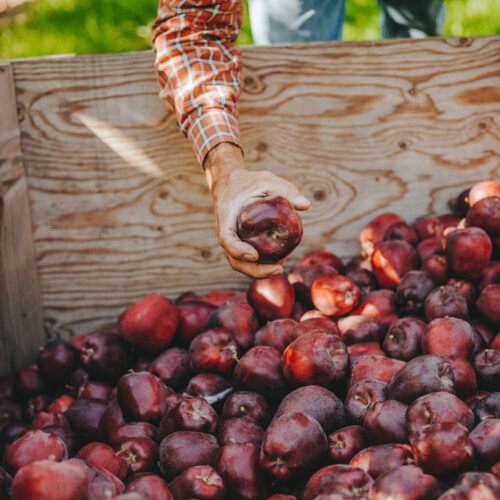
‘Vintage year’ for apple crop, experts say the weather was just right
Freshly picked red delicious apples gather in a bin. Northwest red delicious and galas are again shipping to India after tariffs were lifted. (Courtesy: Washington Apple Commission) Read Many Northwest
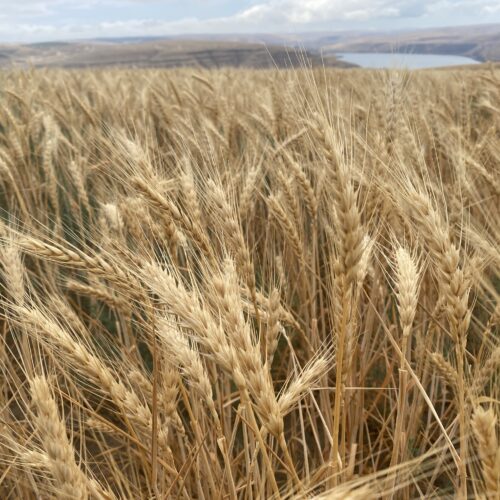
Light headed: Stressed Northwest wheat may yield disappointing harvest
A field of wheat stands straight up and lovely just uphill from the Snake River outside of Windust, Washington – but tall standing wheat can also mean that the heads

